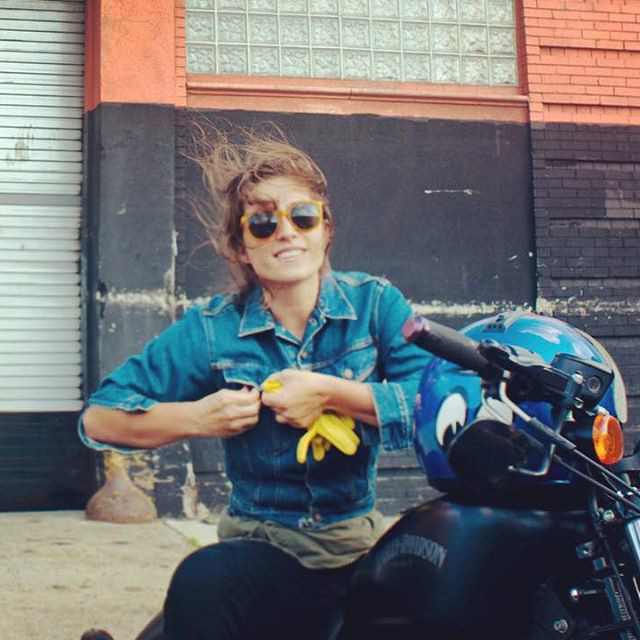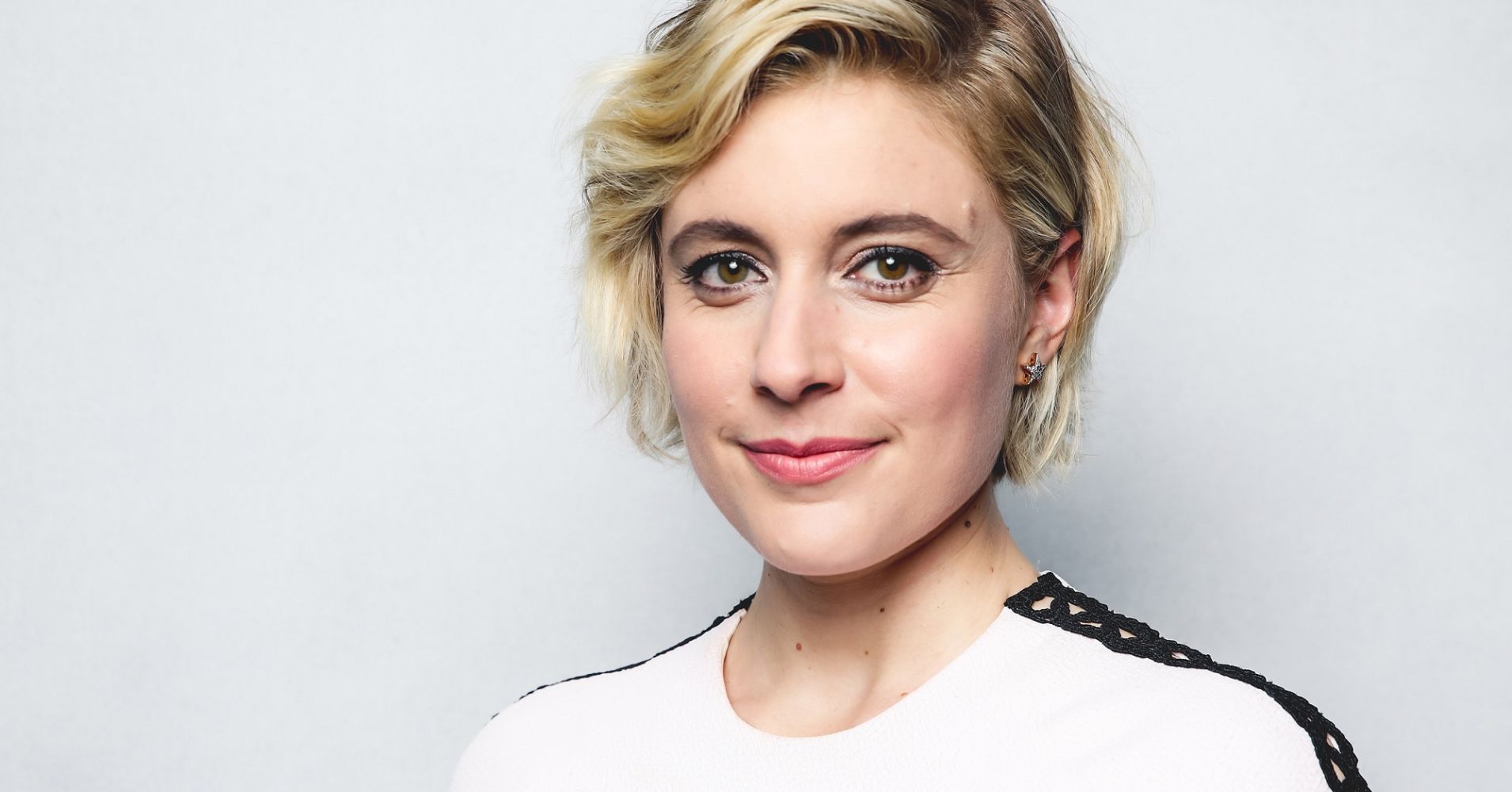When Lady Bird hit theaters, it immediately caught fire. Audiences, critics, and industry veterans fell in love with the film’s raw, relatable story of a young woman determined to leave her hometown. And Greta Gerwig’s debut feature is already holding its own in the 2018 awards season — with tons of nominations and a couple of key wins already in the can.
To see a film from a first-time writer/director receive such rapid acclaim really resonated with us. After all, that’s what gets us out of bed every day. Empowering filmmakers to follow their passions, and to get the recognition they deserve. We thought Greta would have a wealth of advice for our community, so I hopped on the phone with her.
Turns out, she does.

We’re also extra excited to share an exclusive Lady Bird featurette with you. Watch on and soak up the awesome insight Greta shared during our conversation.
Can you talk a little bit about your background?
Well, I am from Sacramento and I went to an all-girls Catholic school for high school. I loved Sacramento. I loved it while I was there, and I had been wanting to make a movie that took place there for a long time. That was one of the original ideas I had for making Lady Bird, and then I also had an idea about wanting to do something about a mother and daughter, and having that be the central, emotional heart of the story.
And my journey to becoming a writer and director was long, in that it felt long while it was happening. But, in retrospect, I guess it wasn’t that long. I always wanted to be a writer, a director, but I didn’t go to film school, so what I did was I used all this time on set as an actor, and a writer, and a co-writer, and a producer, and anything basically that anyone would let me do, as my cobbled together do-it-yourself film school.
When I went to go write the movie, I didn’t think about directing it until I had a script that felt pretty good to me. So once I had the script done and I was happy with it, that’s when I decided, okay, now’s the moment I think you’ve gotten all the information you’re going to get without actually going ahead and doing it.
So it was a movie that I had been wanting to make, — but in some ways not knowing that I wanted to make — for a very long time.
Were you always certain you were going to direct Lady Bird?
Well, so much of how I come at film-making is … for me it’s a piece of writing that’s working. That was true in things I’d co-written. You didn’t talk about making the movie until the script was really good or as good as you could possibly make it on the page. So I take each task separately. I wrote it and was just trying to get the writing right. Because, honestly, if I didn’t get that right, there would be no movie to make.
And then once I had the writing in place, that’s when I thought, alright are you going to direct this or not?
How did you prepare for directing and what about your previous acting experience influenced you?
Well, I have really been using so much of my acting experiences training as a director. One of the great benefits to being an actor is that you get to be on so many directors’ sets. You get to see how different people do it and how they work with, not only different actors but cinematographers, and set designers, and sound mixers, and really the whole team. So for me being an actor was my way into understanding filmmaking and it’s a huge part of who I am as a filmmaker.
I think also I love actors and I love working with them and being around them and trying to figure out what I can do to support them doing their best work. And I think that because I understand the position that they’re in and how it’s so incredibly powerful but also very vulnerable and what it is that I’m asking them to do. I think that I have a certain amount of sensitivity when it comes to dealing with performers, or anyway I hope I do. What they do is so amazing to me.
In terms of walking away after filming: What stayed with you?
Well, it’s kind of impossible to exactly quantify all the things I feel I learned. A lot of things I knew, but there’s just a million little things — and big things — that come into focus when you spend two years making a movie. It’s a long process. It requires a lot of relentless focus because every single part of it matters. Every single collaborator matters. My favorite part of filmmaking is really just what a collaborative art form it is. How many different kinds of people and artists come together to tell a story. Every single one of them are storytellers.
But I think so much of directing is continuing your instincts and honing those world-building elements. It’s hard to break it down to one thing or another. But I would say I have walked away from the whole process mainly feeling like I can’t wait to do this again. Right away.
The dialogue in Lady Bird is so fresh and incredibly real. How did you get to that level of authenticity?
Well, I spend a lot of time writing my scripts. I spent over a year, longer, working on it. I spent a lot of time just letting my characters talk to each other. and I’ll write really, really, really long scripts. But I do it because it gives me a chance to spend time with my characters, to get to know them, and let them go down different paths. Maybe it won’t end up in the final film, but it’s very informative of who the people are and what their inner lives are. For me, it just takes time, and listening to what your characters seem to be saying.
I like things that are funny but also things that have a real ache in the center of them. It’s about making sure each scene is the most effective it can be, that it communicates everything in the most succinct form. Because in film you just don’t have a lot of real estate. You have to get everything into its most clear form.
What about the production phase did you find challenging? How did you overcome those obstacles?
Well, I think one thing that really benefited me having worked on so many films or making this film, was that I knew that challenges in making a film is what making a film is. That is the whole enchilada. Every single day, you’re faced with some problem that seems like it could derail the whole movie. So, it’s just one thing after the other. And I think one thing that was very beneficial was that because I’d worked on so many movies, I just didn’t have any sense that that was how everything falls apart.
It was just like, that’s not a deviation from the road. That is the road to making a movie. It’s all challenges, the whole way down.
And so yeah, every day there was something that seemed impossible. And every day there was some solution that presented itself, that someone came up with or I came up with, that often led us in an even better direction than we’d known before.
I think in some ways I just continually learn to just trust that movies are big projects. They involve a lot of people and a lot time and they’re unyielding. And you can’t panic when these things come up. You have to know that there’s kind of a crazy movie logic that will figure itself out.
What, if anything, surprised you from going from script to scene?
Well, I don’t do any improvisations on my films so the words never change. I had the privilege of working with just incredible actors, and when you work with great actors, there’s a way in which you’re always re-understanding what your movie’s actually about. Because when they perform it and embody it, they’re bringing a depth to it, and an understanding to it, and a person to it that you couldn’t possibly have known when you were sitting alone writing it. So to me, it was getting closer to what the movie was by watching my actors and working with them.
What role do you think Vimeo plays in the process of a filmmaker?
Well, I think that for independent filmmakers, places like Vimeo are just an incredible resource for getting their work up and getting their work out. It’s something that allows people to really present their work, even if it’s something they made just by themselves or with friends. So it’s an extraordinary platform to inform communities and respond to each other’s art.
Any advice for aspiring creators?
Yes. I would say make your own work as much as you possibly can. Make it with your friends. Put it up. Get responses. Make projects with friends of yours who are actors, or other writers, people who can allow your work to get up on its feet. I think that’s really important because sometimes it’s hard to judge a piece of writing when it’s just you in your room. Bring it to people and see how it sounds, what people say, and talk it through. That is really valuable.
More filmmaker interviews
If you are a creator yourself, you may want to explore how Vimeo can help you make, share, and manage videos. Learn more about features like video hosting, our text-based video editor, timeline editor, video graphics, image to video converter, and more.

